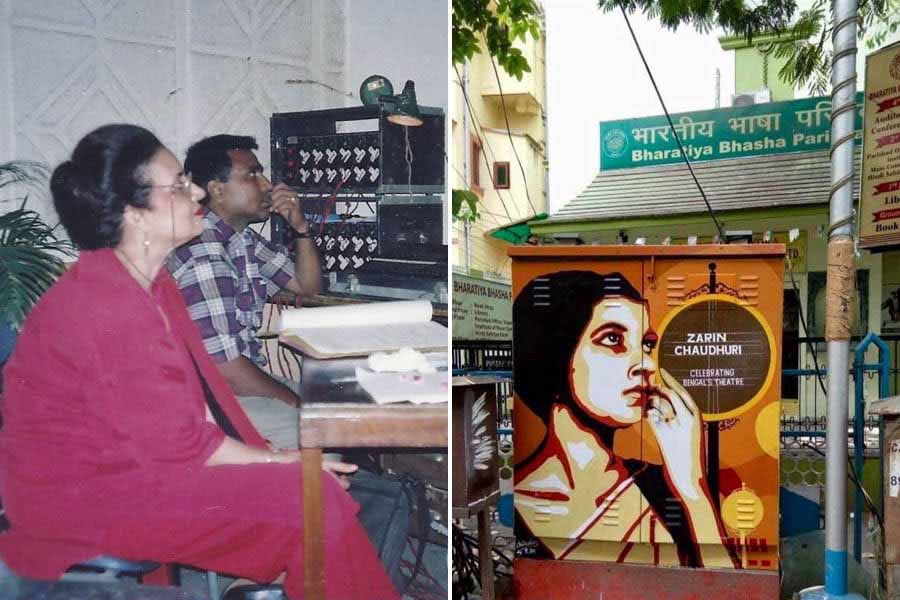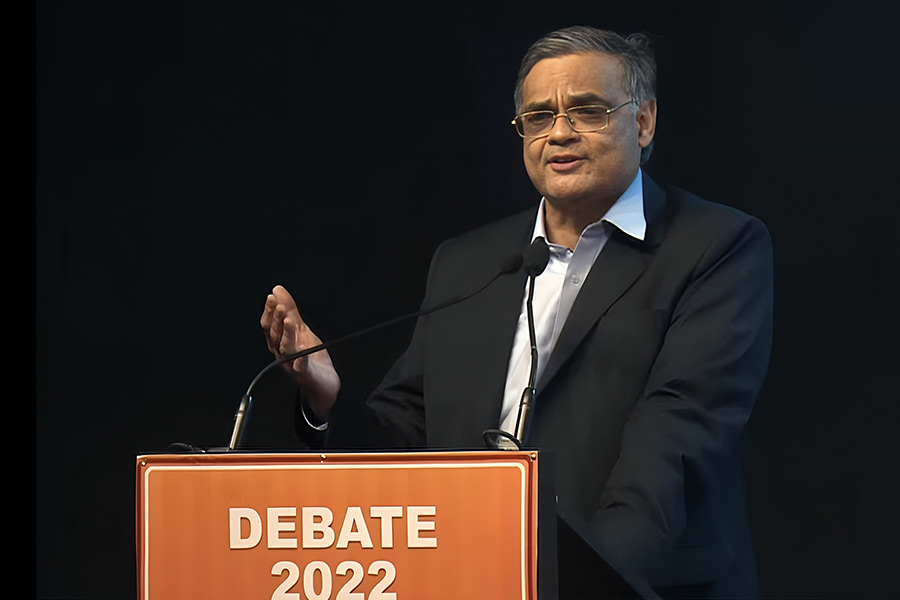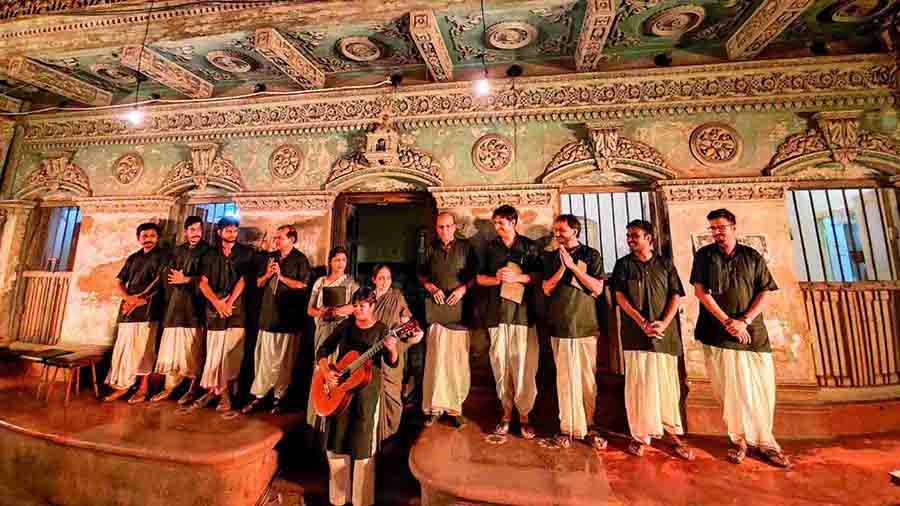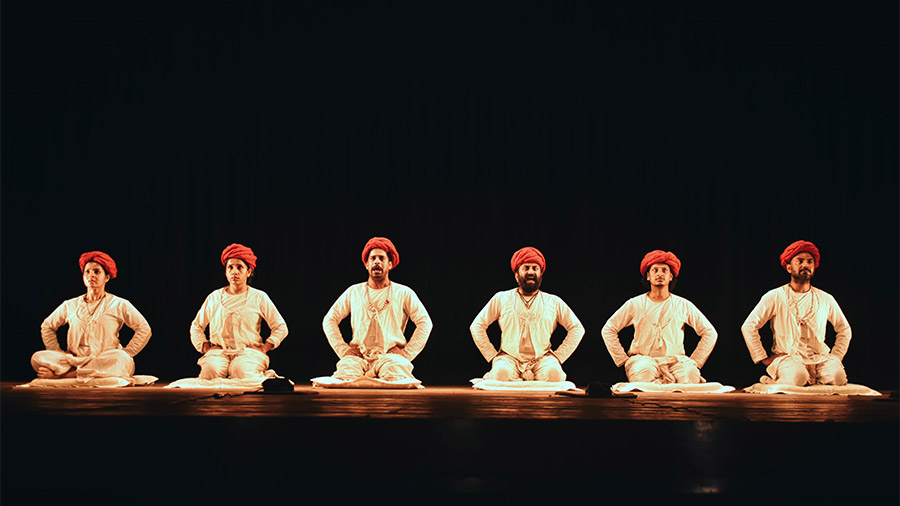It’s just another Wednesday at elocution class in the rather narrowly named Calcutta School of Music. A row of 15 girls and boys lines up horizontally on a stage in an empty auditorium. A teacher asks them to stand with feet shoulder-width apart. She gives them a sign. As they punch one arm forward, they project in unison: “I must push my words forward.”
Today, some two decades and 5,000 miles away from the second city of the Empire, on a November morning in the first, armed with the guilt of privilege and the knowledge of colonialism, it’s impossible not to feel just a little bit ashamed of having spent every Wednesday for 10 years learning how to enunciate just so — ‘ee’s’ one finger wide and ‘ah’s’ two fingers wide. It’s impossible to contain the tremendous sense of loss that comes with the passing of someone who shaped one’s life.
In school, we called all our teachers ‘Miss’, but there was only one Ma’am
Zarin Chaudhuri was an institution. She passed away on November 9 at the age of 82. In the days and weeks that follow, there will be countless obituaries written about her by people who knew of her life and greatness far more intimately than I ever did. Of how she took Kolkata’s golden age stage by storm (both as a theatre personality and as a teacher at several Kolkata institutions, including Loreto House, Middleton Row). Of how she directed for four decades since the ’70s, including marshalling The Action Players (a troupe of hearing impaired children) on stage. Her countless productions combined theatre, mime, dance and music forms from the East and the West. She was adept at leading ambitious productions across schools on budgets that the London theatre scene wouldn’t believe.
For me, though, she was just ‘Ma’am’. In school, we called all our teachers ‘Miss’, but there was only one Ma’am — gentle but incisive, elegant but approachable, eccentric but grounded. Elocution was my favourite after-school class, I looked forward to it all week long. Through the years, I also ‘did’ piano and music theory (nerdily loving the latter but never being very good at the former), drawing (mediocre), Indian classical/Rabindrasangeet (below mediocre), basketball (“butterfingers”, my coach would yell), and Bharatanatyam and Odissi (six months and six weeks, respectively, left me traumatised). Alas, I dashed my rather optimistic Renaissance parents’ hopes in most. Elocution was the one thing that stuck.
Truth be told, elocution under Ma’am’s supervision should’ve had a rebrand. It was so much more than elocution. Ma’am would start the class with the dreaded warm-ups. She’d make us do a series of exercises and stretches, ending with what felt like an interminable amount of time lying on the floor, where we’d have to close our eyes and focus on relaxing every part of our body, from the tip of our toes to the top of our heads. We hated this and were always desperate to move on to the “fun stuff”. But now, when I’m in my bougie Hatha yoga sessions at my overpriced gym, paying an arm and a leg for ‘mindfulness’, I realise what Ma’am was getting at. After we were sufficiently warmed up, we’d move on to breathwork and voice exercises, and all sorts of theatre games like ‘copy my face’ and ‘trust exercises’. Finally, we would recite the poems and rhymes we’d been asked to memorise the previous week. Even 20 years later, I remember bits and pieces, and sometimes all, of at least 30 of them.
It’s only now that I realise the sheer scale of her impact, the force of her memory
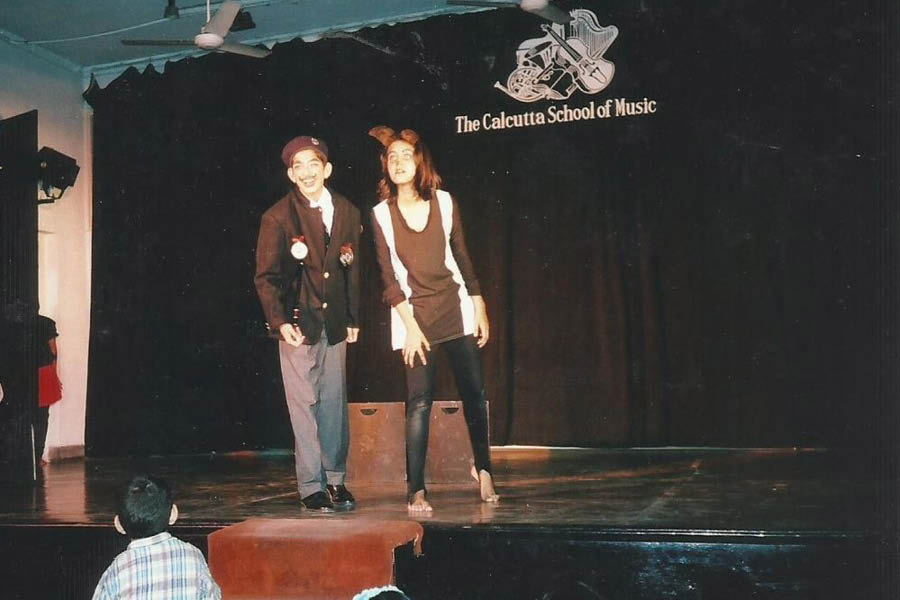
The author (right) along with Jamshed Madan at a Calcutta School of Music production performed by Loreto House for the British Council Theatre Festival Malini Bose
Ma’am introduced us to Shel Silverstein — a breath of fresh air from the school poetry syllabus. She asked us to wriggle our middles when being eaten by the “Boa constrictor”, disdainful of any style of recitation that expected children to stand with their hands behind their backs. We performed “Owl and the Pussycat” as a class for the annual programme, the chorus drawing out the shape of a pea-green boat with our hands. Gradually, we moved to Roald Dahl’s macabre retellings of fairy tales, taking turns playing the different animals with childlike un-self-consciousness.
Middle school brought a special treat — mandatory speech and drama classes with Ma’am, alongside her elocution class outside school. For the first time, I could share the joys that I’d experienced outside school with my whole class of 90. I watched Ma’am effortlessly run through the same rhythms with a much larger cohort of girls, but didn’t appreciate (in my pre-teen selfishness) that she was transforming their lives as she was mine. It’s only now as the messages pour in on our class WhatsApp group about how much she meant to people that I realise the sheer scale of her impact, the force of her memory.
As we grew older, unbeknownst to us, Ma’am began to push us more and more out of our comfort zone. We graduated to more serious plays — learning about Oscar Wilde’s irony and Shakespeare’s pentameter without ever using those words the way we did in literature class. Indian writing such as Vikram Seth’s Beastly Tales and vernacular dialogue entered stage left — we learned to move effortlessly between the Queen’s English and our mother tongues in class as we did in our (relatively privileged post-colonial) homes. My best friend and I started to write plays for the class to perform, with little understanding of the theory of anything, but oodles of encouragement from the doyenne of drama. We started to do improv — she’d set us various situations and we’d have to populate them with characters on the spot. By this time in our teens, self-consciousness had reared its head. I still remember my heart beating out of my chest during some of those scenes.
Ma’am must have created what I now know to have been a ‘safe space’
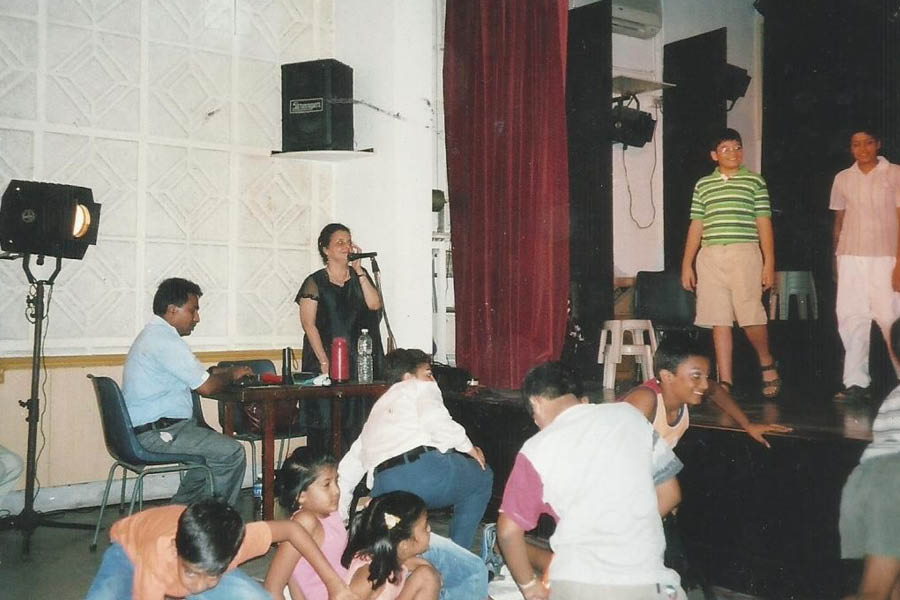
Chaudhuri had an innate ability to work with children and get the best out of them Malini Bose
I wish I’d told Ma’am about the monumental impact she’s had on me, though I’m grateful to my mum for calling her occasionally over the years to update her about me. I would start by telling her that it’s because of her that theatre is still my first love — one of my top four reasons for living in London. Even though it’s been over a decade since I acted in or directed anything, it’s been incredible to just have the opportunity — and privilege — to lose myself in some of the world’s best theatre.
I would tell Ma’am that she helped give me a voice. I didn’t really know back then what feminism (or indeed any ‘ism’) was. Ensconced in the safety of my all-girls’ school and in a family full of strong women, I didn’t need to. In the out-of-school class, the boys started off seeming rather scared of us, standing as far away as they possibly could. Over the years, we stopped treating each other as a contagious disease, acting together more comfortably. I realise that in the years between eight and 16, Ma’am must have created what I now know to have been a ‘safe space’. The breathwork and mindfulness techniques I learned then to overcome stage fright are what I turn to today before speaking at a presentation or in a difficult meeting where I’m struggling to be heard.
Finally, I would tell Ma’am that she taught me to truly value the arts and their place in society. Because of her, I can immerse myself in reimagined worlds, taking a step back from the one we’re stuck in. I’ve seen a series of messages on social media in the devastating wake of Donald Trump’s re-election — of art having to rise from the embers to save us all. I don’t think I ever discussed politics with Ma’am in all the years I knew her, but I’m thinking now about how populist authoritarian regimes don’t like the arts — and classes like hers — precisely because they teach people to reimagine. I hope against hope that schools like mine and countless others across the world manage to fight the wave of “focussing on commerce and science” to keep classes like Ma’am’s in the curriculum.
After all, we must push our words forward.
Malini Bose lives in London, working to make global transport systems more sustainable and accessible by day, and spending all her savings on theatre and food by night. She left Kolkata over 15 years ago to study-work-study-work, but left her heart and stomach on Middleton Row
